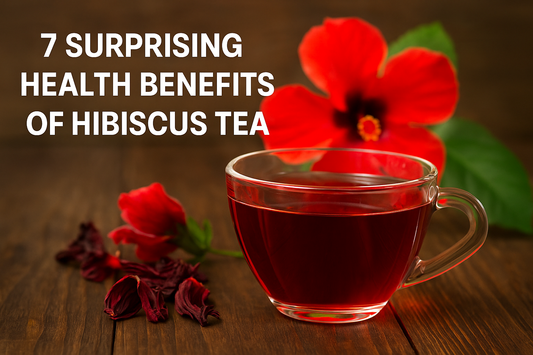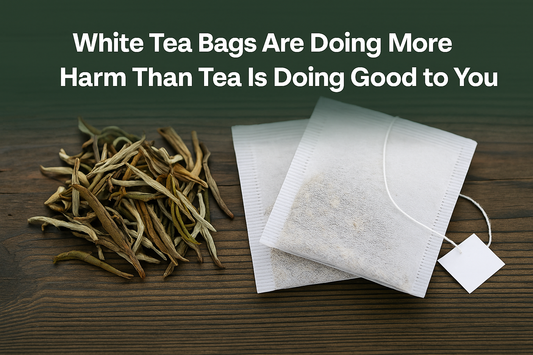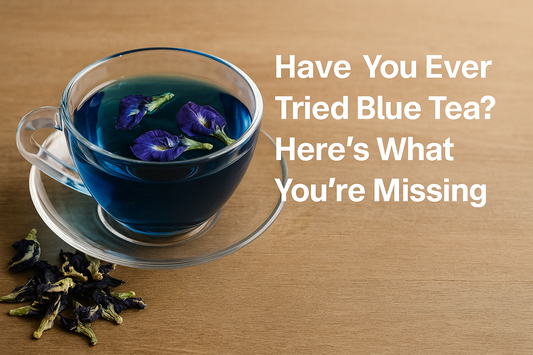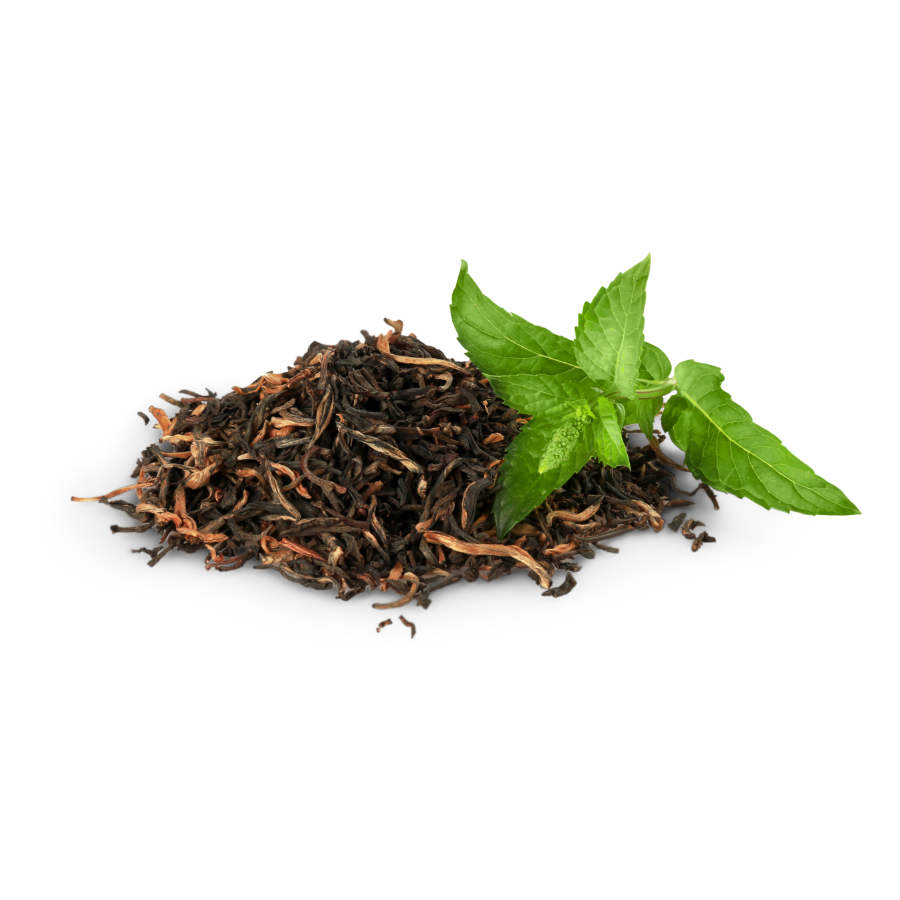What’s the Deal with Flower Teas? Rose, Chamomile & More Explained
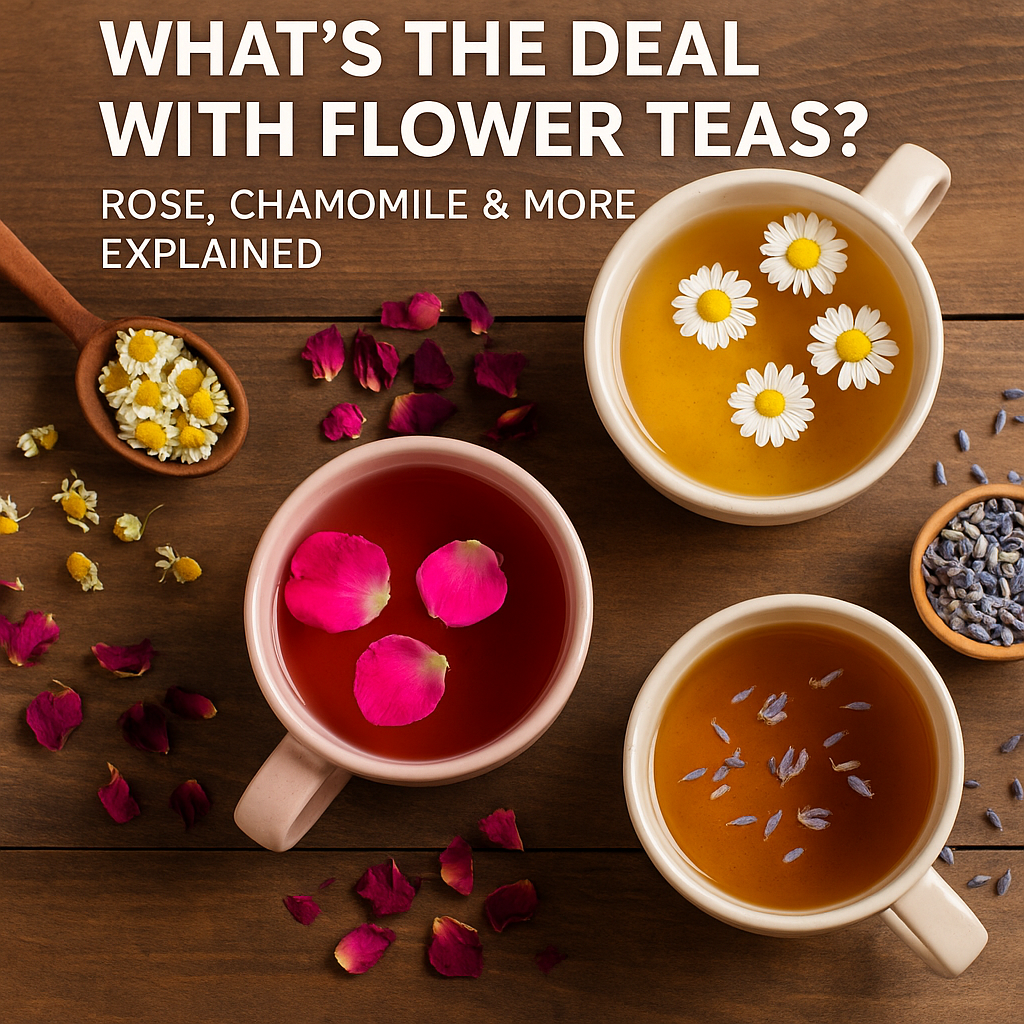
Introduction: The Fragrant World of Flower Teas
In a world of green, black, and herbal brews, flower teas stand apart—gracefully aromatic, naturally colorful, and surprisingly potent in benefits. From centuries-old rituals in China and Egypt to modern-day wellness cafes in Bangalore and Berlin, these floral infusions have found their place in the spotlight.
Whether you're steeping dried rose petals in your morning routine or sipping chamomile to unwind after a long day, flower teas are more than a fragrant indulgence. They bring with them calming, cleansing, and beautifying properties that many regular teas just can't match.
Rose Tea: The Queen of Floral Brews
Often hailed as the ‘queen’ of flower teas, rose tea is a timeless classic. Made from either fresh or dried rose petals, this tea has been cherished for its delicate aroma and wellness benefits across cultures—from ancient Persia to Ayurveda to Victorian England.
Benefits of Rose Tea:
-
Skin health: Rich in antioxidants and Vitamin C, rose tea is often used to maintain a youthful glow.
-
Digestive aid: Its mild laxative properties help improve digestion and relieve bloating.
-
Mood enhancer: The floral aroma has a soothing effect on the mind, known to reduce anxiety and lift mood.
Taste Profile: Light, floral, slightly sweet — like sipping serenity.
Best Time to Drink: Afternoon or early evening for a calming reset.
Chamomile Tea: Your Golden Hour Relaxation Ritual
Chamomile tea, with its sunny golden hue and apple-like aroma, is one of the most widely consumed herbal infusions in the world. Made from dried chamomile flowers (most commonly Matricaria chamomilla), it's cherished as a natural sedative and gentle healer.
Benefits of Chamomile Tea:
-
Promotes restful sleep: Its mild sedative effect helps ease insomnia and support better sleep cycles.
-
Soothes the stomach: Chamomile is known for relieving indigestion, gas, and minor tummy troubles.
-
Anti-inflammatory: Acts as a gentle anti-inflammatory agent, useful for minor aches and skin irritations.
Taste Profile: Mildly sweet, floral, and earthy with a hint of apple.
Best Time to Drink: Night-time or post-dinner wind-down.
Other Popular Floral Teas You Should Know
While rose and chamomile lead the floral pack, there are several other flower-based teas worth steeping. Each offers its own bouquet of flavors and functional perks.
Hibiscus Tea:
-
Tart, cranberry-like flavor.
-
Helps regulate blood pressure and supports heart health.
-
Rich in Vitamin C and antioxidants.
Lavender Tea:
-
Lightly floral and fragrant.
-
Reduces stress and tension; known to calm the nervous system.
-
Often blended with chamomile for deeper sleep aid.
Blue Pea (Shankhpushpi / Butterfly Pea) Tea:
-
Earthy, woody, and mildly bitter.
-
Known for brain-boosting and memory-enhancing effects in Ayurvedic tradition.
-
Famous for its vibrant blue color that turns purple with lemon.
Marigold (Calendula) Tea:
-
Slightly peppery and tangy.
-
Good for skin healing and gut inflammation.
-
A natural antibacterial infusion.
Each of these can be brewed solo or blended with green/black tea bases for added depth and variety.
Brewing the Perfect Floral Tea: Tips for Taste & Aroma
To fully enjoy the nuances of floral teas, a few simple brewing techniques go a long way:
-
Use freshly boiled (but not over-boiled) water: Ideal temperature is around 85–90°C to preserve the delicate oils in flowers.
-
Steep gently: 3–5 minutes is usually enough; over-steeping may cause bitterness.
-
Avoid metal strainers if possible: Use glass or ceramic infusers to retain authentic taste.
-
Enhance with natural flavor: Add a dash of honey, a few drops of lemon, or even a cinnamon stick depending on your mood.
Storage Tip: Keep floral teas in airtight containers, away from light and humidity. Their aromas fade quickly if exposed.
🌼 Final Sip: Sip Serenity, One Petal at a Time
Floral teas are more than just a drink—they're a sensory experience. They gently nudge your mind into stillness, pamper your body with antioxidants, and please your palate with subtle, natural sweetness.
Whether you're calming down after a long day with chamomile or lifting your spirits with rose or lavender, these infusions are your daily floral therapy.
So, go ahead—brew a cup, breathe in the aroma, and sip your way to balance.

